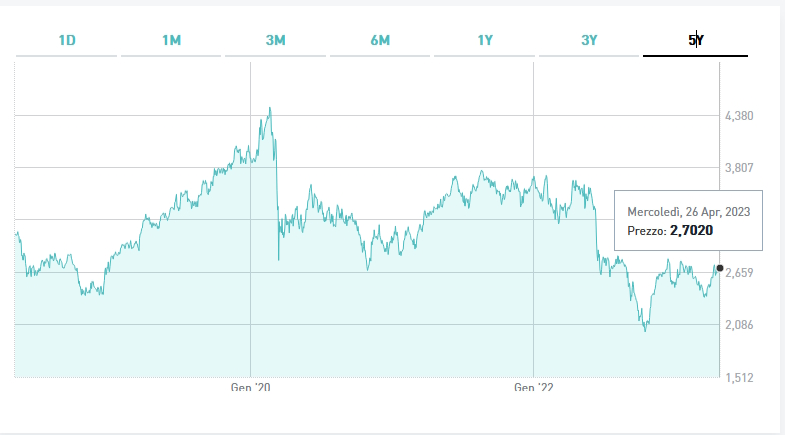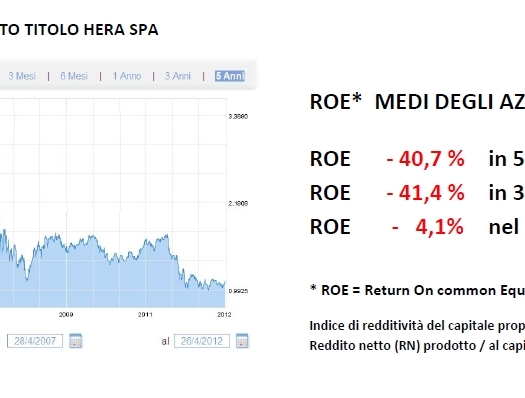2023 April, 27th
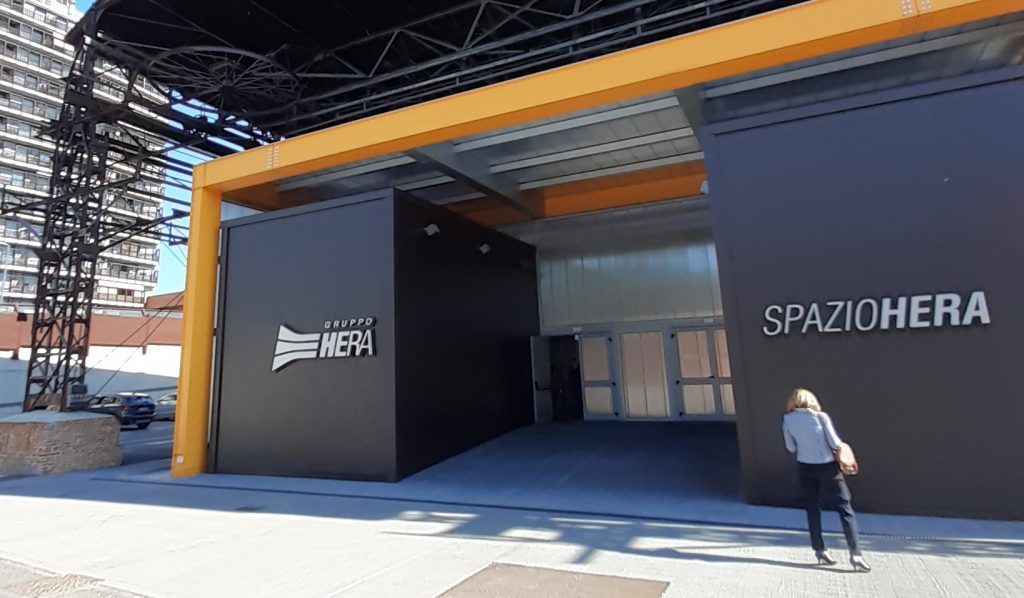
Thank You Mr. President, good morning everyone,
bring the point of view of some small shareholders, who are also users of the company.
The point of view is extremely positive.
I would like to thank the management and in particular the Executive Chairman Mr. Tomaso Tommasi who has worked with constancy and balance to deliver us a company that is healthy, in order, in good hands, and which is heading in the right direction.
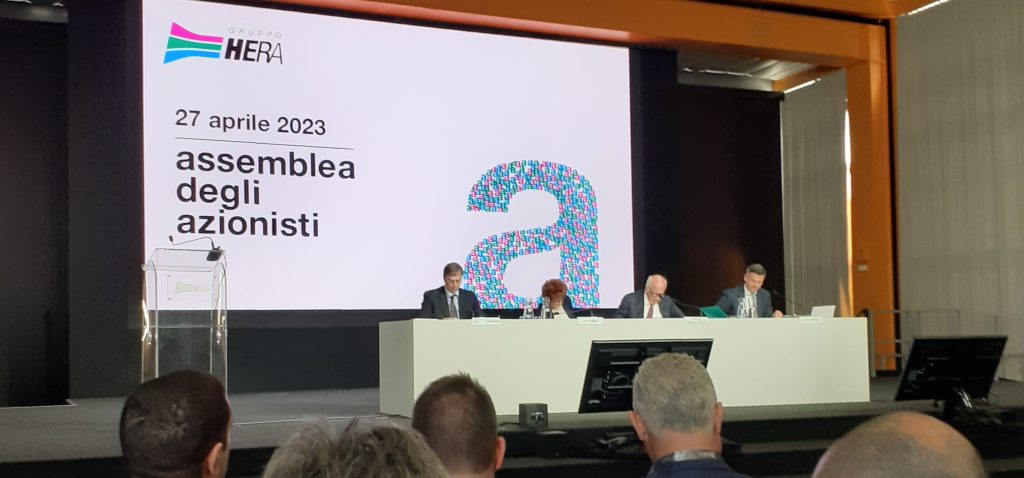
The guidelines are addressed to n. 4 objectives which we consider cornerstones:
1. Pay attention to the impact on the territory of revenues, using as much as possible suppliers of the reference area.
2. Pay attention to synergies with other multi-utilities. They have to be considered partners and not competitors, for the sharing of good practices, IT systems, purchasing centers.
3. Being a vertically integrated company, with production chain activities of an entrepreneurial nature. We refer for example to the production of energy from biomass. To the production of polymers from recycled plastic. To the drainage of large industrial areas. These activities generate know-how for our environment, which is a value that cannot be seen in the numbers in the balance sheet, but which exists. I noticed an acceleration in this sense with the appointment of Mr. Stefano Venier as CEO. I hope that the new Board of Directors that will be elected today can continue in the same direction.
4. Being a publicly owned company, half public and half made up of small shareholders. This thing is not obvious, and for this I have to thank Mr. President Tomaso Tommasi, who has managed to hold the company in public hands.
At the beginning there was a certain rigidity on my part, but when in 2010 I started participating in Hera Group shareholders’ meetings, we came from a season of privatization of the Italian industrial backbone, IRI, and at the same time in Bologna we have gradually witnessed to the change of ownership to foreigners of important companies such as:
– Credito Romagnolo and Cassa di Risparmio in Bologna (which together held over 30% of the shares of the Bank of Italy;
– the municipal pharmacy chain;
– large cooperatives such as Edilter;
plant engineering companies such as Filippo Fochi, the company that built the gasometer alongside over 100 years ago;
– the municipal companies of public utility services.
I approached the former municipal companies, to try to understand a little more closely what was happening, and what could still happen.
So on the internal management side of the company, so far, so good.
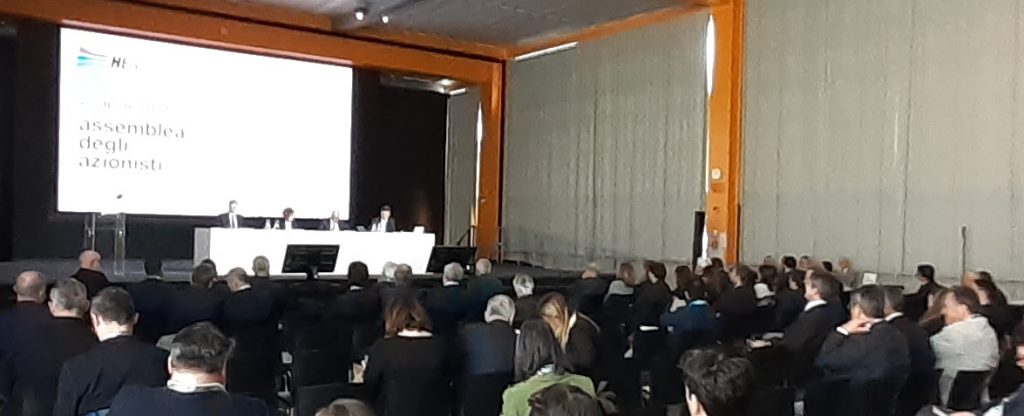
However, there are two more general aspects that each multi-utility should consider:
- the topic of energy security and control of energy prices
- the topic of resources for the restructuring of the network.
These are issues of a national order and cannot be left to the market, to individual multi-utility companies.
PFor energy security, we have witnessed price fluctuations which fell then on users. Politics in France and Germany -which already have a 30% lower energy cost given by nuclear power- have nationalized EDF and Gazprom Germany to control prices. But consider that they were able to do it because they have a system of public banks.
Moreover also in Germany KfW – Kreditanstalt für Wiederaufbau (Reconstruction Bank), a public institution equivalent of our national Cassa Depositi e Prestiti,, injected 750 billion euros of liquidity.
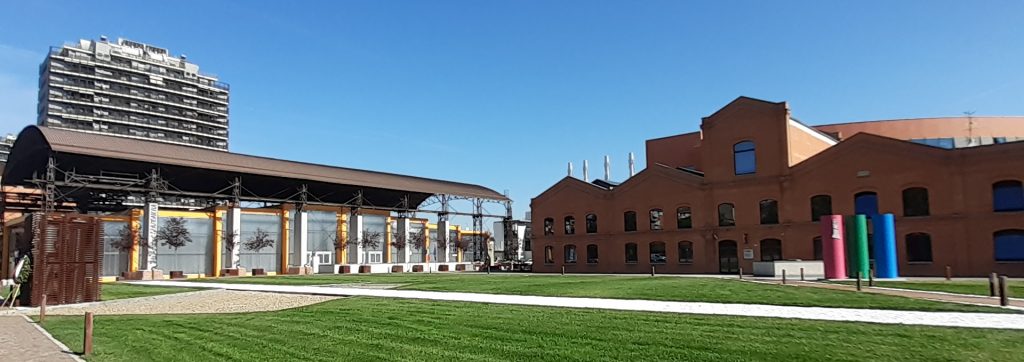
Actions like these can only come from coordination between management and public ownership, in the field of national economic policy. In order to compete fairly with France and Germany here in Italy, property as a public entity would, in my humble opinion, require two actions:
- Coordination between multiutilities in Utilitalia to acquire shares of banks now partially in public hands, such as MPS – Monte dei Paschi di Siena and Banca Popolare di Bari. If the matter requires a change in the Bylaws, the change in the Bylaws will be made at the meeting.
- Requesting the European Union to make public spending, given that the State and the Municipalities are not a family. There are roads, water networks, sewers to be built and maintained, and for this it is necessary to put money into circulation. Let me give you an example: the PNRR funds of which our company has benefited for over 130 million, they are not taken from an underground vault, but are created with the click of a computer. The Gold Standard regime ended in the 1970s, and the currency is released from gold: money is created with a click of the computer, and the limit to the issue is the achievement of full employment and price stability, i.e. an inflation rate of up to about 10%.
Politics in France and Germany have acted in the interest of publicly owned companies and users. We hope that we too will move in this direction, otherwise our multi-utilities could go the way of companies in other utility sectors -such as transport and telecommunications- which today speak French and German.
Thank you Mr. President, Best wishes, good job to management and owners
Enrico Nannetti Hera Spa Shareholders’ Meeting of 27 04 2023
